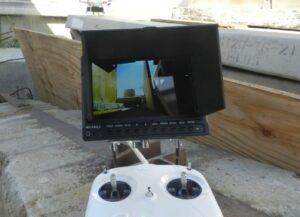 IntelliNet Sensors, Inc., a developer of multi-sensor breathing detectors, has announced the launch of the Lynx6-A, a breathing and heartbeat detection sensor with remote connectivity capabilities that is designed to be mounted on an unmanned vehicle.
IntelliNet Sensors, Inc., a developer of multi-sensor breathing detectors, has announced the launch of the Lynx6-A, a breathing and heartbeat detection sensor with remote connectivity capabilities that is designed to be mounted on an unmanned vehicle.
The ultra-light sensor is designed to detect the existence of live persons trapped under the rubble of a collapsed building, while its integrated micro HD video camera enables the guidance and landing of any small unmanned aerial vehicle (UAV) as a carrier.
The Lynx family’s patented Sense-Through-The-Air Technology enables networking between the various units of the Lynx-A to identify multiple trapped individuals below ground level. The system has several advantages over existing search and rescue technologies and capabilities: traditional solutions of seismic sensors are susceptible to environmental noise, K-9s are inefficient in windy conditions and prone to high positive and negative false readings, and radar-based detectors lack accuracy and effectiveness.
“By remotely landing the sensor in multiple points, extreme efficiency in set up and search time to detect trapped individuals can be achieved,” commented Dr. Fred Mohamadi, Founder and President of IntelliNet Sensors. “The rapid deployment within hard-to-reach areas allows first responders and law enforcement personnel to save many more lives in a highly stressful and noisy environment – a factor that traditional sensors are lacking.”


















